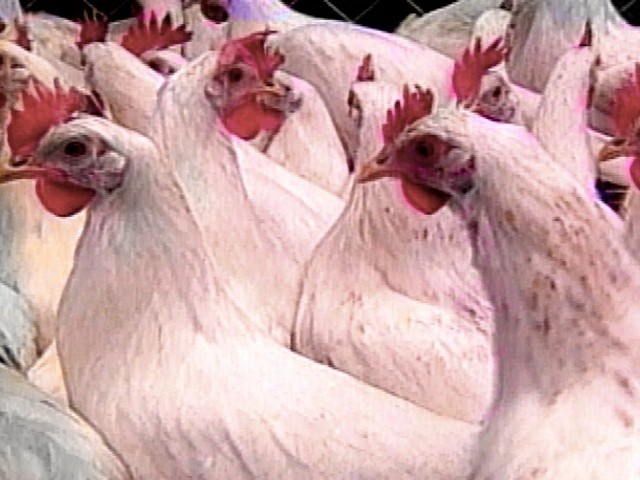WASHINGTON - The Agriculture Department is proposing to reduce the number of government inspectors at poultry slaughter plants in a move the agency says will make inspections more efficient and improve food safety.
Agriculture Secretary Tom Vilsack said about 1,000 government inspector jobs at poultry plants would be phased out as companies take over the job of looking for visual flaws like bruises in chickens on the processing line. Vilsack said inspectors would shift to jobs more important to food safety, such as sampling for pathogens and keeping conditions sanitary.
The move could save the government as much as $95 million in the first three years, Vilsack said.
"The modernization plan will protect public health, improve the efficiency of poultry inspections in the United States, and reduce spending," he said.
The chicken industry supports the plan, which would speed up the rate at which poultry is processed and could save companies and consumers more than $250 million, according to the department. The shift would be voluntary and has already been tested at some plants around the country. USDA officials predict about 200 of the 300 qualified poultry plants in the United States would make the switch.
Consumer group Food and Water Watch said the proposal would give poultry companies too much control over inspections.
"USDA must abandon this plan that puts industry interests above consumer protection," said Wenonah Hauter, director of the group.
Poultry companies say they have made great strides in recent years to reduce contamination of pathogens such as salmonella and campylobacter in their products. But that has not made them immune to outbreaks of illness. An outbreak of salmonella poisoning linked to Cargill ground turkey last summer sickened at least 136 people and killed one, prompting a recall of 36 million pounds of turkey.
Thursday
May 2nd, 2024
3:05AM









